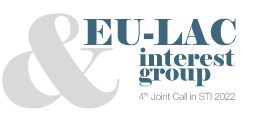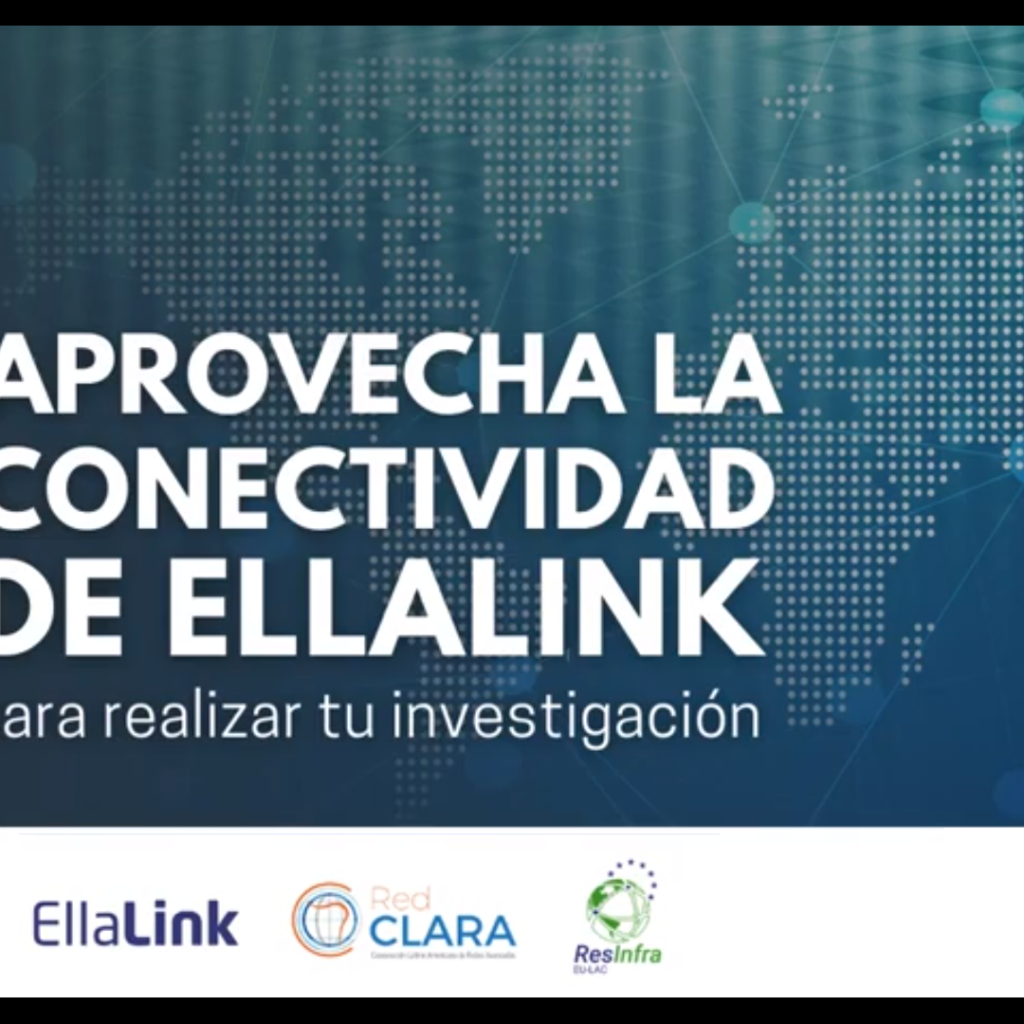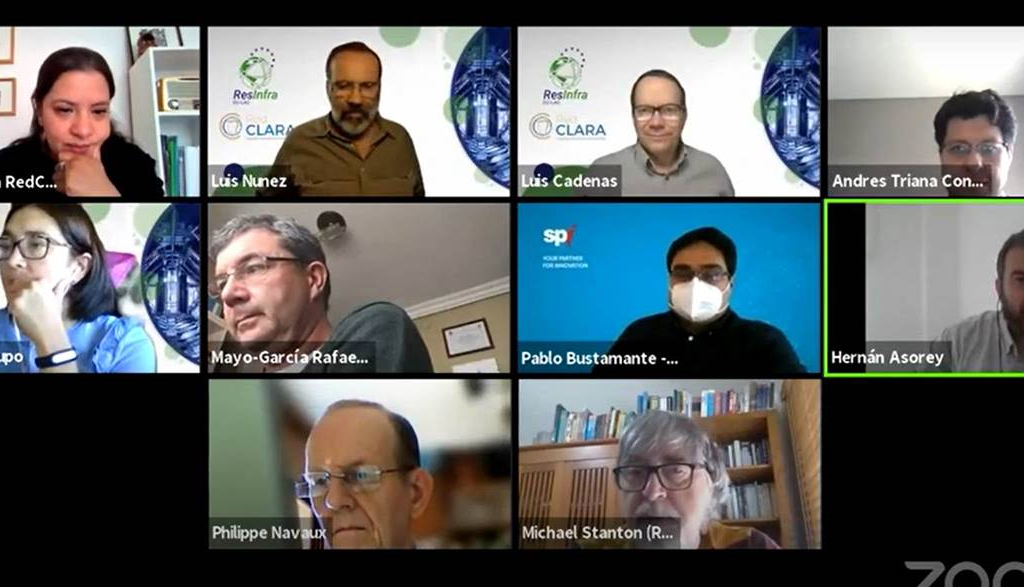On October 14th 2021, EU-LAC RESINFRA project together with RED-CLARA held a successful event entitled “Take advantage of EllaLink connectivity to carry out your research”. Taking the EllaLink as starting point, the workshop exposed and discussed the capabilities of the existing advanced networks between EU and LAC for the development of research activities.
EllaLink – the transatlantic high-connectivity cable linking Europe and LAC that was implemented by RedCLARA and the pan-European advanced network GÉANT – is now completed. According to Luis E. Cardenas, Executive Director of RedCLARA, who opened the workshop, EllaLink represents an important step for the data exchange between Europe and Latin America, opening a new stage of the scientific collaboration among these two regions.
Inmaculada Figueroa, coordinator of the project EU-LAC RESINFRA, presented an overview on the existing capacities of the Research Infrastructures (RIs) collaboration links between Europe and LAC. EU-LAC RESINFRA supports the RIs bi-regional cooperation and their internationalization envisaging a range of different activities. Inmaculada Figueroa stressed the importance of each of these activities for the construction of the EU-LAC RIs collaboration, and the opportunities the project is opening for the researching activities of both regions.
RedIRIS, the Spanish academic and research network that provides advanced communication services to the scientific community and universities, was presented by Alberto Pérez, the director of the entity. During the presentation, the advanced services provided by this infrastructure were exposed, stressing the importance of infrastructures like RedIRIS to connect academic and research networks from different parts of the world and to develop research projects at the global scale.
The initiatives LaConga and LAGO were presented by Luis Núñez and Hernán Asorey as examples of projects that use the above-mentioned infrastructures and services to develop their activities. Both presentations highlighted how the existing advanced networks between EU and LAC are producing direct impacts on the scientific progress of our societies.
All the speakers participated in the closing roundtable together with Lautaro Matas (LA Referencia), Philippe Navaux (SCALAC) and Michael Stanton (RNP). The session was moderated by Raphael Mayo Garcia from CIEMAT and coordinator of RICAP one of the 4 pilots of EU-LAC ResInfra project. Questions such as how to guarantee the maintenance of these projects’ outcomes and impacts in time as well as the best strategies to exploit the existing knowledge and the available resources were among the topics discussed at the end of the workshop.
The event took place online through the Zoom platform and was attended by researchers from LAC (78% attendees) and Europe. It was broadcast on YouTube, and made available afterwards on the same platform. The workshop recording can be accessed here: https://www.youtube.com/watch?v=ynsUrv8Im70&t=625s.


















